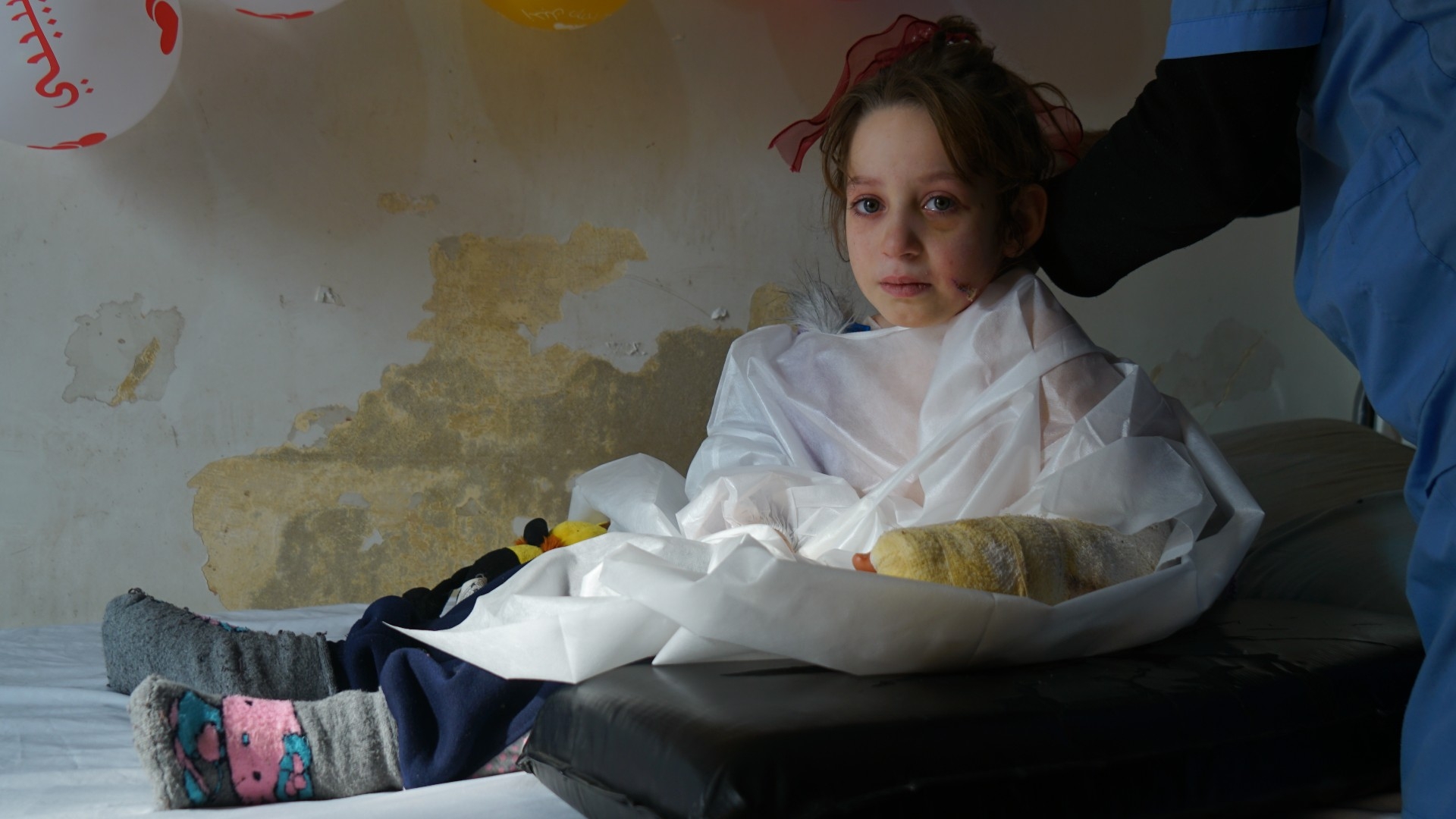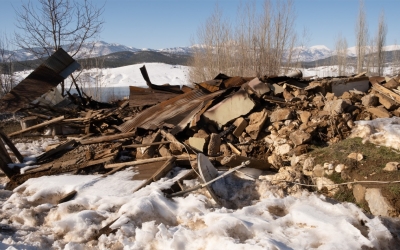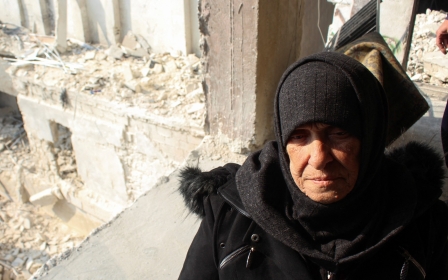Syria: She lost her parents in the earthquake. Her uncle doesn't know how to tell her

Curled under a thin white medical gown at the Maarrat Misrine hospital, Hanaa al-Sharif keeps asking for news of her family.
Her uncle, Abdullah, looks away each time she asks why they haven't visited.
Even the medical staff don't know how to approach the conversation.
Hanaa is eight, and completely unaware that she is the sole survivor among her immediate relatives, after her father, mother and four-year-old sister perished along with more than 46,000 others when twin earthquakes struck southern Turkey and northwest Syria on 6 February.
Hanaa was trapped for 36 hours under the rubble of her collapsed building in the border town of Harim, before she was pulled out by a brave group of volunteer rescuers who rushed her to hospital more than an hour away.
When she arrived she was in a critical condition, her doctor, Basil Astif, told Middle East Eye.
"She suffered severe dehydration having been under the rubble without food or water and in the cold weather."
'Saw nothing but darkness'
Hanaa's condition has since stabilised, but her left arm was crushed during the quake, with Astif noting that his team was doing its best to avoid an amputation.
"We've operated on her arm and there are some wounds to her face, body and foot," he said.
"We've treated at least 36 children, most of whom are suffering from severe shock over the lengthy time they spent under the rubble."
Hospitals in northwest Syria, the country's last major opposition enclave, were already unable to carry out the most basic of procedures due to repeated attacks by Damascus and its allies since the start of the conflict in 2011.
The region is home to around 4.4 million people, including more than two million who are internally displaced, according to UN figures. Around 70 percent of the population is in need of humanitarian assistance.
"When the earth started shaking, my father, mother, sister and I were rushing down the stairs," Hanaa told MEE.
"When the bricks began falling on us I could no longer hear the voice of my father or mother. I fell asleep and woke up and saw nothing but darkness. I spent a long time under the rubble."
'Haven't told her yet'
Standing outside the hospital room, Hanaa's uncle fears her condition will only worsen when she learns of her family's fate.
The little girl has only her grandparents and uncles to raise her in this region, which is yet to receive meaningful aid more than two weeks after the quake struck.
"We haven't told her yet and we're waiting for her wounds to heal," he said. "Her psyche is not prepared for this news."
The UN Economic and Social Commission for Western Asia (ESCWA) said on Tuesday that many of the survivors were having to contend with extremely cold temperatures and were left without drinking water, electricity or fuel for heating, and are further exposed to the danger of crumbling buildings as they try to seek shelter.
Initial estimates say over 2,276 buildings have collapsed in northwest Syria, though it is difficult to measure whether damage to some buildings had been caused by the earthquakes or previous shelling by the Syrian government and Russian forces.
The Response Coordinators Group, a local Syrian NGO based in Turkey and Syria, said in a statement that 45 percent of the infrastructure in the northwest had been damaged.
Middle East Eye delivers independent and unrivalled coverage and analysis of the Middle East, North Africa and beyond. To learn more about republishing this content and the associated fees, please fill out this form. More about MEE can be found here.






